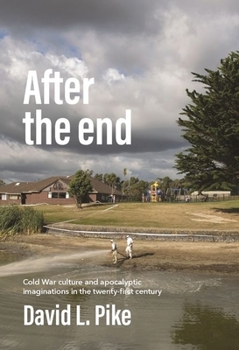After the End: Cold War Culture and Apocalyptic Imaginations in the Twenty-First Century
After the End argues that the cultural imaginaries and practices of the Cold War continue to deeply shape the present in profound but largely unnoticed ways across the global North and in the global South. The argument draws examples from literature and literary criticism, film, music, the historical and social scientific record and past and present physical sites to consider the bunker as a material form, an image and as a fantasy that took shape...
Format:Hardcover
Language:English
ISBN:1526174049
ISBN13:9781526174048
Release Date:April 2024
Publisher:Manchester University Press
Length:360 Pages
Weight:1.89 lbs.
Dimensions:1.1" x 6.1" x 9.2"
Customer Reviews
0 rating





